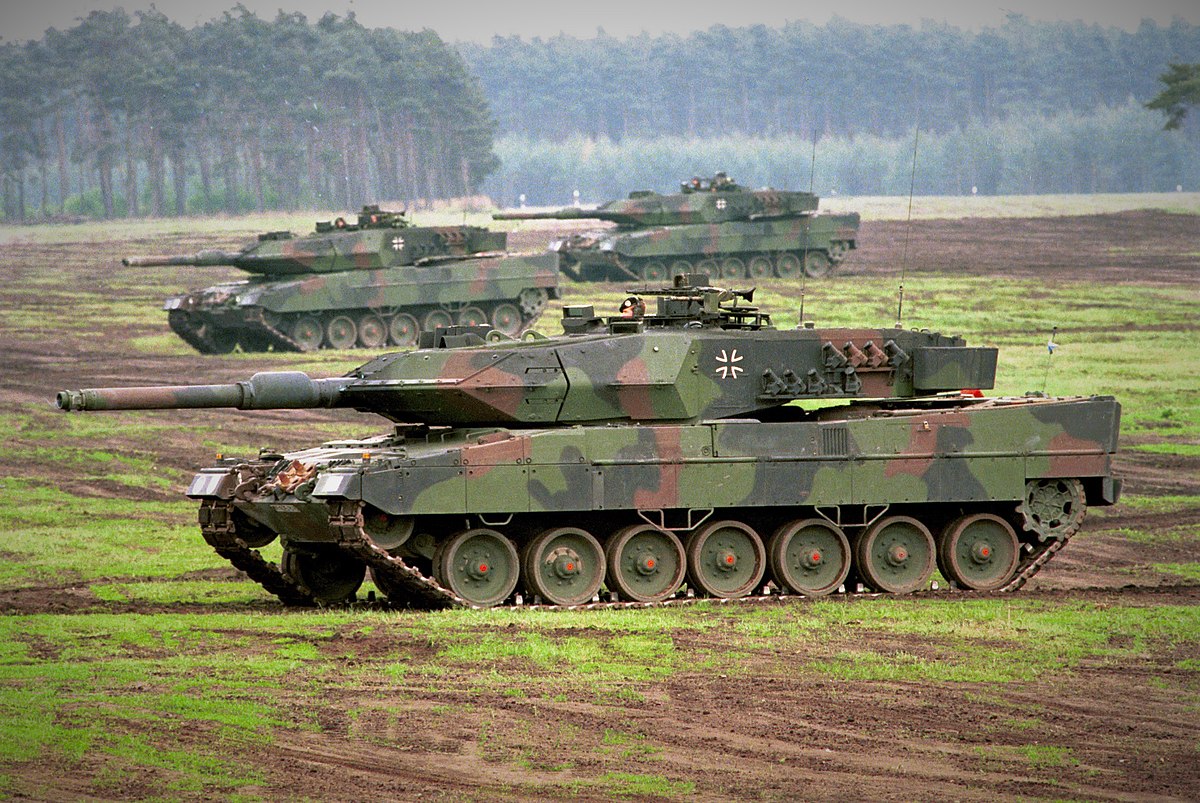Negotiations between Italy’s Leonardo and the Franco-German consortium KNDS regarding the joint development and production of the Leopard 2A8 main battle tank (MBT) have fallen through. The development, announced on June 11, casts doubts about Italy’s planned acquisition of Leopard tanks.
KNDS, a collaboration between Germany’s Krauss-Maffei Wegmann and France’s Nexter, ended when the partnership talks cited irreconcilable differences over the tank’s configuration.
Announced in December 2023, the partnership is aimed to integrate Leonardo’s components and electronics into the Leopard 2A8, with assembly planned at Leonardo’s facility in La Spezia, Italy.
The disagreement stemmed from Leonardo’s desire for more significant inputs than KNDS was willing to accommodate.
“With 18 European user countries, Leopard 2 is the battle tank standard of our continent and NATO. It is more important than ever to safeguard this standard, which makes a significant contribution to the interoperability and joint combat power of the European and NATO armies. The parties did not manage to agree on configuration,” said Frank Haun, CEO of KNDS.
In a statement released shortly after KNDS’s announcement, Leonardo confirmed the end of negotiations. “Despite the efforts undertaken, the interruption of the negotiations with KNDS to define a common configuration for the Main Battle Tank program of the Italian Army and to develop a broader cooperation,” Leonardo said.

Leonardo reaffirmed its commitment to providing the Italian Army with a high-performance and interoperable solution, remaining open to future developments and partnerships.
The breakdown could have significant implications for Italy’s defense plans. The Italian government has plans to acquire 132 Leopard 2A8IT combat-capable tanks and up to 140 support vehicles as part of a two-phase program valued at approximately €8.2 billion ($8.8 billion).
The first phase, scheduled from 2024 to 2026, covers development and pre-series production, while the second phase, extending to 2037, focuses on acquiring production-standard platforms.
The collapse of the Leonardo-KNDS talks jeopardizes Italy’s immediate tank acquisition plans and its potential involvement in the European Main Ground Combat System (MGCS) program, which KNDS is leading.
Further, the failure of these negotiations could impact the broader consolidation efforts within the European land defense industry, a sector long overdue for such integration.
Leopard Tanks’ Reputation Takes A Hit In Ukraine
The failure to secure this partnership is a significant setback for the tank’s prospects and the European defense industry’s collaborative efforts. This development comes when Leopard tanks are already in the spotlight due to their performance in the ongoing Ukraine conflict.
Germany took several months to decide about sending the Leopard main battle tanks to Ukraine. Finally, in early 2023, Berlin approved the transfer of 88 Leopard 1 and 80 advanced Leopard 2 tanks to the conflict-ridden nation.
Among these, 18 Leopard 2s directly sourced from the German Armed Forces inventory were delivered to Ukraine in March 2023.
The allocation of these tanks was hailed as a pivotal move in Kyiv’s anticipated counteroffensive, aiming to furnish close combat support and shield soldiers from Russian assaults.
However, the Leopards became entangled in tragic narratives. In June 2023, Moscow declared the capture of German Leopard tanks.

It has been acknowledged that the Leopards have encountered problems and do not meet the performance standards as initially advertised.
In September 2023, Berlin faced a moment of embarrassment when Ukraine declined a shipment of 10 Leopard 1A5 tanks, citing the need for repairs beyond the capacity of the Ukrainian military.
It was reported that many tanks had either remained unused in storage facilities for extended periods or were repaired just before being sent to Ukraine.
Subsequent reports in January 2024 suggested that Ukraine was on the brink of losing all Leopard 2 tanks donated by Germany amidst intense clashes with invading Russian forces.
Sebastian Schäfer, an economist and member of Germany’s Green Party, expressed concerns to local media outlet Der Spiegel about the dwindling Leopard tank inventory in Ukraine.
He highlighted the shortage of spare parts, exacerbating the situation as untrained Ukrainian forces attempted repairs, potentially worsening damages.
Schäfer urged expedited spare parts deliveries from manufacturers to revive sidelined Leopard tanks for frontline deployment. Additionally, he advocated enhanced training or guidance for Ukrainian mechanics, suggesting Germany take a proactive role in this aspect.
- Contact the author at ashishmichel(at)gmail.com
- Follow EurAsian Times on Google News




